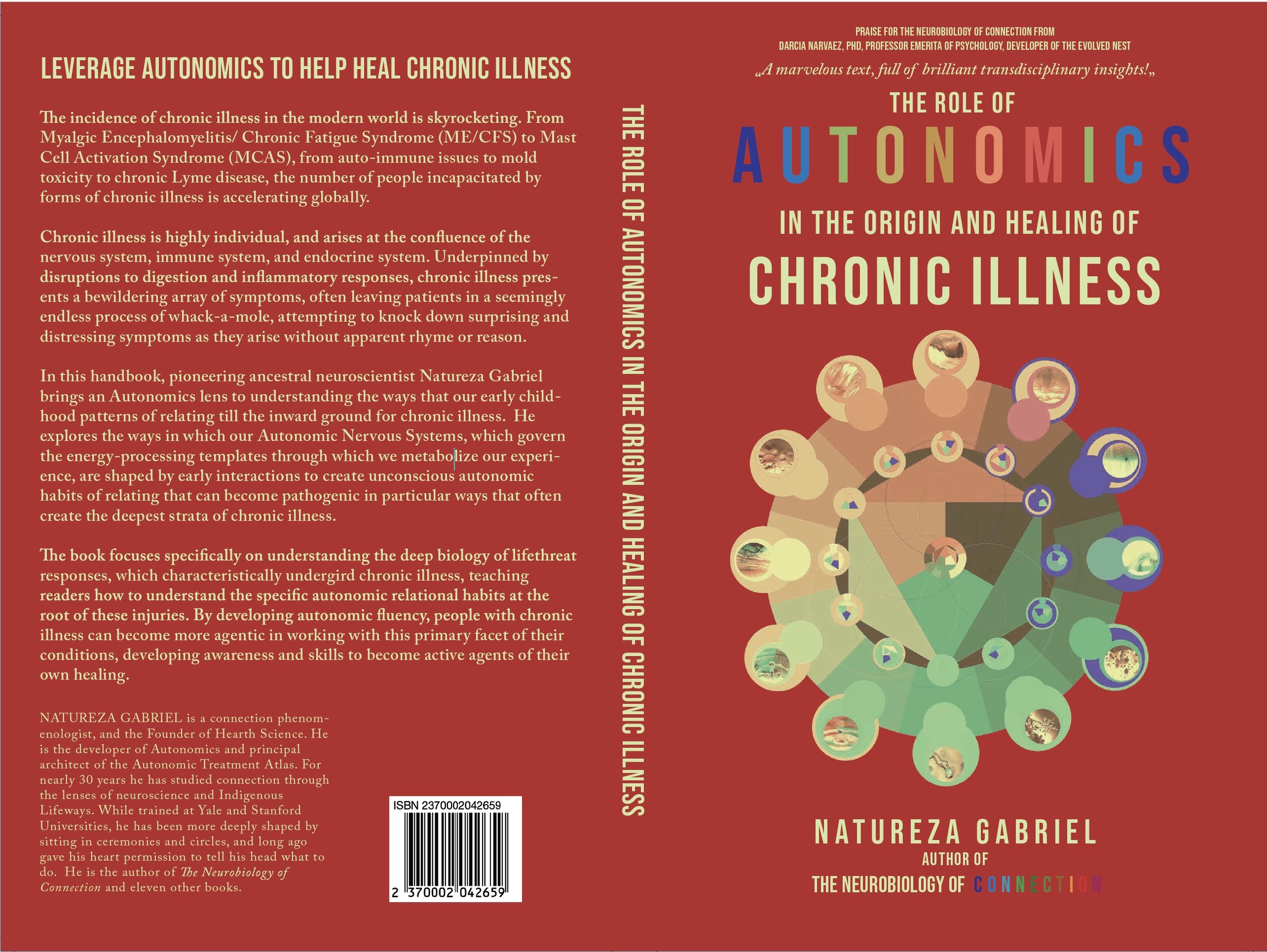
THE ROLE OF AUTONOMICS IN THE ORIGIN AND HEALING OF CHRONIC ILLNESS
Join pioneering ancestral neuroscientist Natureza Gabriel for a deep-dive into how autonomic lifethreat responses learned unconsciously in childhood can create the deepest neurological strata of chronic illness (its origins), and what we can do about this (healing).
A handbook for people seeking to understand and transform the root drivers of chronic illness.
Understand the autonomic origins of chronic illness
in early patterns of
relating.
A brief conversation with Gabriel about the book
Who is this book for?
Anyone with chronic illness, or anyone supporting someone with chronic illness.
Why did you write this?
The incidence of chronic illness in the modern world is skyrocketing. From Myalgic Encephalo-myelitis/ Chronic Fatigue Syndrome (ME/CFS) to Mast Cell Activation Syndrome (MCAS), from auto-immune issues to mold toxicity to chronic Lyme disease, the number of people incapacitated by forms of chronic illness is accelerating globally. As I worked with functional medicine doctors and clinics to apply an autonomics lens to these illnesses, it became clear that there was an underlying autonomic pattern
What is unusual autonomically about chronic illness?
Chronic illness is highly individual, and arises at the confluence of the nervous system, immune system, and endocrine system. Underpinned by disruptions to digestion and inflammatory responses, chronic illness presents a bewildering array of symptoms, often leaving patients in a seemingly endless process of whack-a-mole, attempting to knock down surprising and distressing symptoms as they arise without apparent rhyme or reason.
What is the book focused on?
I wanted to bring an Autonomics lens to understanding the ways that our early childhood patterns of relating till the inward ground for chronic illness. I wanted to explore the ways in which our Autonomic Nervous Systems, which govern the energy-processing templates through which we metabolize our experience, are shaped by early interactions to create unconscious autonomic habits of relating that can become pathogenic in particular ways that often create the deepest strata of chronic illness.
The book focuses specifically on understanding the deep biology of lifethreat responses, which characteristically undergird chronic illness, teaching readers how to understand the specific autonomic relational habits at the root of these injuries. By developing autonomic fluency, people with chronic illness can become more agentic in working with this primary facet of their conditions, developing awareness and skills to become active agents of their own healing.
Anything else about the book?
The book is paperback, 154 pages, with full-color interior and illustrations.


